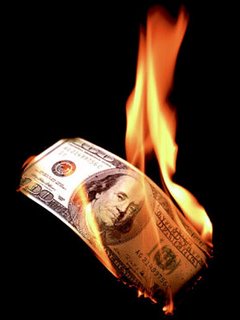 An investment bank main objective is to help corporations and governments in raising funds by underwriting activities. Merrill Lynch is an example of a good investment bank. In addition, investment banks also work as agents in the issuing of securities as well as mergers, acquisitions, and divestitures. In order to be an investment bank, it has to have a broker-dealer license. The investment banks obligation is to governments and corporations. Nonetheless, the investment banks make money by individuals investing in the bank such as hedge funds and mutual funds, as well as individuals including other small investment. On the same hand, investment banks also underwrite and research securities and trade existing securities for cash or other securities to maximize profit for their investors.
An investment bank main objective is to help corporations and governments in raising funds by underwriting activities. Merrill Lynch is an example of a good investment bank. In addition, investment banks also work as agents in the issuing of securities as well as mergers, acquisitions, and divestitures. In order to be an investment bank, it has to have a broker-dealer license. The investment banks obligation is to governments and corporations. Nonetheless, the investment banks make money by individuals investing in the bank such as hedge funds and mutual funds, as well as individuals including other small investment. On the same hand, investment banks also underwrite and research securities and trade existing securities for cash or other securities to maximize profit for their investors.
Chase Manhattan is an example of a commercial bank. The specific role of a commercial bank is to provide service to the everyday people. These services include opening, depositing, and closing checking, saving, and money market accounts. The primary income for commercial bank is interest on loans, mortgages and fees. The commercial bank is for the average everyday person because the bankers accept deposits and pay interest on their accounts.
Glass-Steagall Act
The main concept of Glass-Steagall was to solidify rules that commercial and investment banks have to be separate. In other words, commercial and investment banks cannot operate as one bank. However in 1999, the Glass-Steagall Act was repealed under the Bill Clinton Presidency. Since the Glass-Steagall Act was repealed, investment and commercial banks are allowed to operate under one location.
— ALJ Analysis
Glass-Steagall Act was good for the United States because it held banking laws in place, so that banks would not have too much power. However, I think that the repeal of the Glass-Steagall Act was a mistake. Investment and commercial banks should be separate. It maybe a conflict of interest when banks have to decide whether or not it is in their best interest to do business with investors, governments, or consumers. Moreover in the long run, bankers are going to sway to business deals that have greater profits, which are usually companies and the government. As a result, this leaves ordinary people like you and me with much hope.
In recent news, the government is considering to reinstate the Glass-Steagall Act. If the Glass-Steagall Act is reinstated, it will affect banks in the United States such as Goldman Sachs and JP Morgan Chase. For example, JP Morgan Chase would be required to separate their banks into commercial (Chase) and investment (JP Morgan). In short, the banking cartel will have less control. In my opinion, the Glass-Steagall Act is what the United States needs to rejuvenate its economy.


















